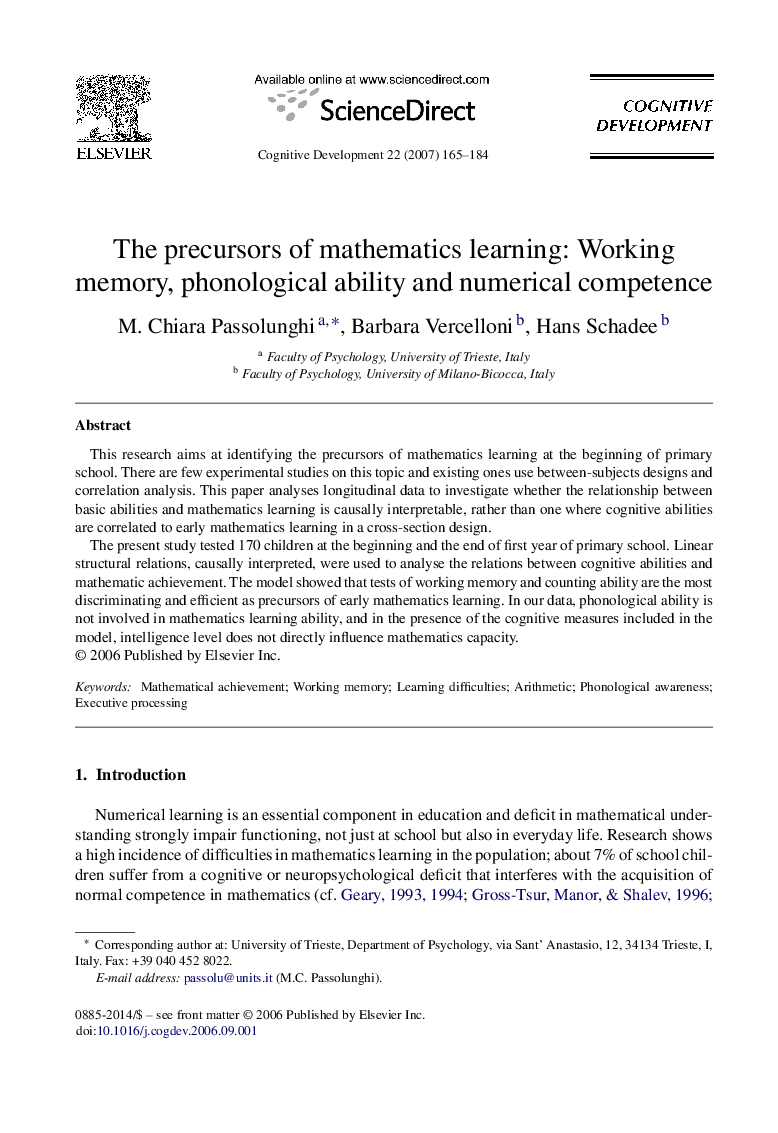| Article ID | Journal | Published Year | Pages | File Type |
|---|---|---|---|---|
| 916661 | Cognitive Development | 2007 | 20 Pages |
This research aims at identifying the precursors of mathematics learning at the beginning of primary school. There are few experimental studies on this topic and existing ones use between-subjects designs and correlation analysis. This paper analyses longitudinal data to investigate whether the relationship between basic abilities and mathematics learning is causally interpretable, rather than one where cognitive abilities are correlated to early mathematics learning in a cross-section design.The present study tested 170 children at the beginning and the end of first year of primary school. Linear structural relations, causally interpreted, were used to analyse the relations between cognitive abilities and mathematic achievement. The model showed that tests of working memory and counting ability are the most discriminating and efficient as precursors of early mathematics learning. In our data, phonological ability is not involved in mathematics learning ability, and in the presence of the cognitive measures included in the model, intelligence level does not directly influence mathematics capacity.
